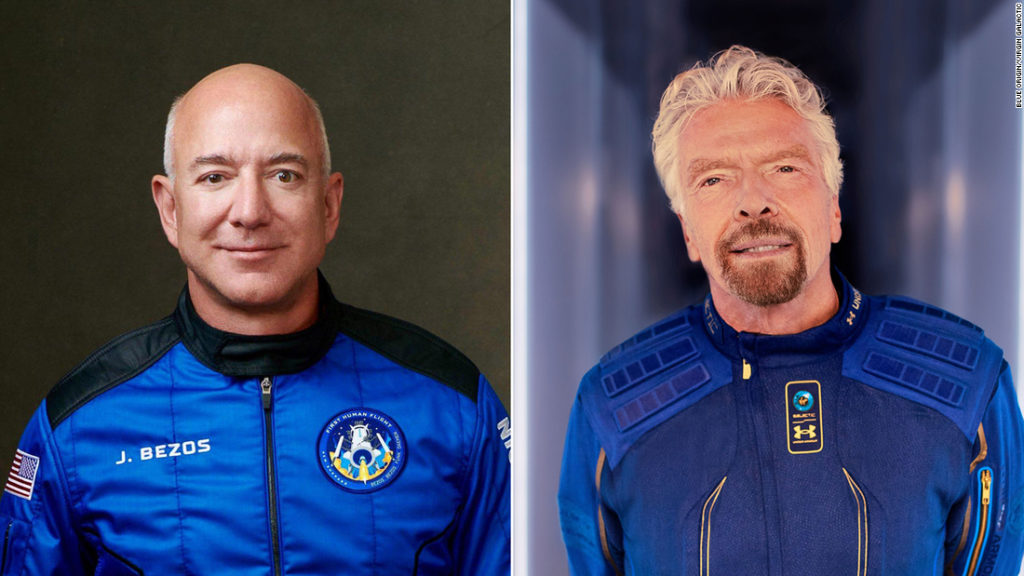Blue Origin may conduct up to two more flights for paying customers in 2021, though the company has stayed staunchly mum about how much tickets will cost. At least one ticket was sold at
an auction that concluded last month and the winner, whose identity is unknown, agreed to fork over $28 million. That person was expected to fly alongside Bezos, but they bowed out at the last minute citing “scheduling conflicts” and is now expected to cash in their ticket at a later date.
Virgin Galactic plans to fly one more test flight before beginning to offer seats in early 2022 to the roughly 600 people who have already bought tickets for between $200,000 and $250,000 — or about the median home price in the United States. The company is also accepting reservations for new tickets that are expected to sell at an even higher price point.
Not to mention, Elon Musk’s SpaceX, which has developed far more powerful rockets capable of hauling NASA astronauts into Earth’s orbit for multi-day visits, is expected to fly its
first tourism mission later this year. Though it hasn’t disclosed price points, one early estimate was that such orbital expeditions would cost around $55 million per seat. (Musk has not announced any firm plans to travel to space himself, beyond saying that he would like to die on Mars one day.)
But that’s far from all these billionaires have planned in outer space.
The big vision
For Bezos, Blue Origin’s suborbital tourism missions are merely a bridge to much grander ambitions for cosmic adventure. In his view, Earthly civilizations are headed for an energy-supply crisis that can only be solved by harnessing extraterrestrial resources. And, according to Bezos, “we really have to move heavy industry and polluting industry” — things like energy and microchip production — “off Earth.”
“It won’t be done in my lifetime,” Bezos
told CNN’s Anderson Cooper. But he envisions Blue Origin will create new technologies that start paving the way there, such as reusable orbital rockets much like those that SpaceX already operates. And the New Shepard suborbital vehicle that Blue Origin developed helped inform the design of a moon lander that could be used to support commercial operations on the moon, such as mining water ice for rocket fuel or other deep-space projects.
Bezos has also previously said that he hopes millions of people will one day live and work in space, possibly inside massive, spinning space stations like those proposed by
Princeton physicist Gerard O’Neill in the 1970s.
Branson, meanwhile, hopes his high-flying space plane technology can be parlayed into a hypersonic point-to-point travel business, shuttling passengers across the globe in a fraction of the time it would take them on a more traditional commercial aircraft.
Then there’s Musk, whose SpaceX is already building and testing a gargantuan rocket that he envisions will carry the first humans to Mars and give humanity the means to establish a permanent settlement there.
The backlash
All of these visions have elicited plenty of pushback, with critics decrying the tendency of billionaires to hoard wealth and
skirt taxes in the name of pursuing grandiose ambitions that do little to confront the myriad pressing problems humanity is facing. (See: climate change, an ongoing pandemic that has already killed millions and likely many more without proper vaccine access, global political uncertainty, housing and homelessness crises, etc.)
In the meantime, Branson, Bezos and Musk hope their otherworldly pursuits inspire a new generation of curious space explorers and entrepreneurs. And there were plenty of people cheering Bezos and Branson on during their supersonic joy rides in recent days. But those voices were met with cries of displeasure at equal decibels.
Sports and culture website Defector, for example, declared that Bezos and Branson had somehow done the impossible — not by building rockets that can reach the edge of space (as NASA and other space agencies have been able to do since the mid 20th-century) — but by managing to make space fatally “
uncool.” The Atlantic blared a headline begging the money-laden duo to “
please read the room.” Tiktoks
relentlessly mocked them. Tweets accusing them of pursuing pointless vanity projects
racked up over 100,000 likes. Pulitzer Prize-winning political cartoonists pointed out that Bezos’ dream of saving the planet was only made real through
thousands upon thousands of planet-destroying trucks.
The so-called
space barons are known to defend themselves by saying they can work to solve Earthly problems while also chasing their long-term goals in outer space. And their long-term goals, especially with promises that they won’t be delivered on within anyone alive today’s lifetime, also serve to insulate them from any long-term criticism. In awarding CNN contributor Van Jones and chef Jose Andrés with his $100 million “courage and civility award,” Bezos went so far as to decry those who, instead of disagreeing with a person’s ideas, “question their character, or their motives.”
But if Bezos, Branson and Musk want to save humanity, they first have to convince humanity. And they will have to answer many questions about their character and motives if they want humanity to trust that the goal of these efforts is to lead it to a survivable future.

